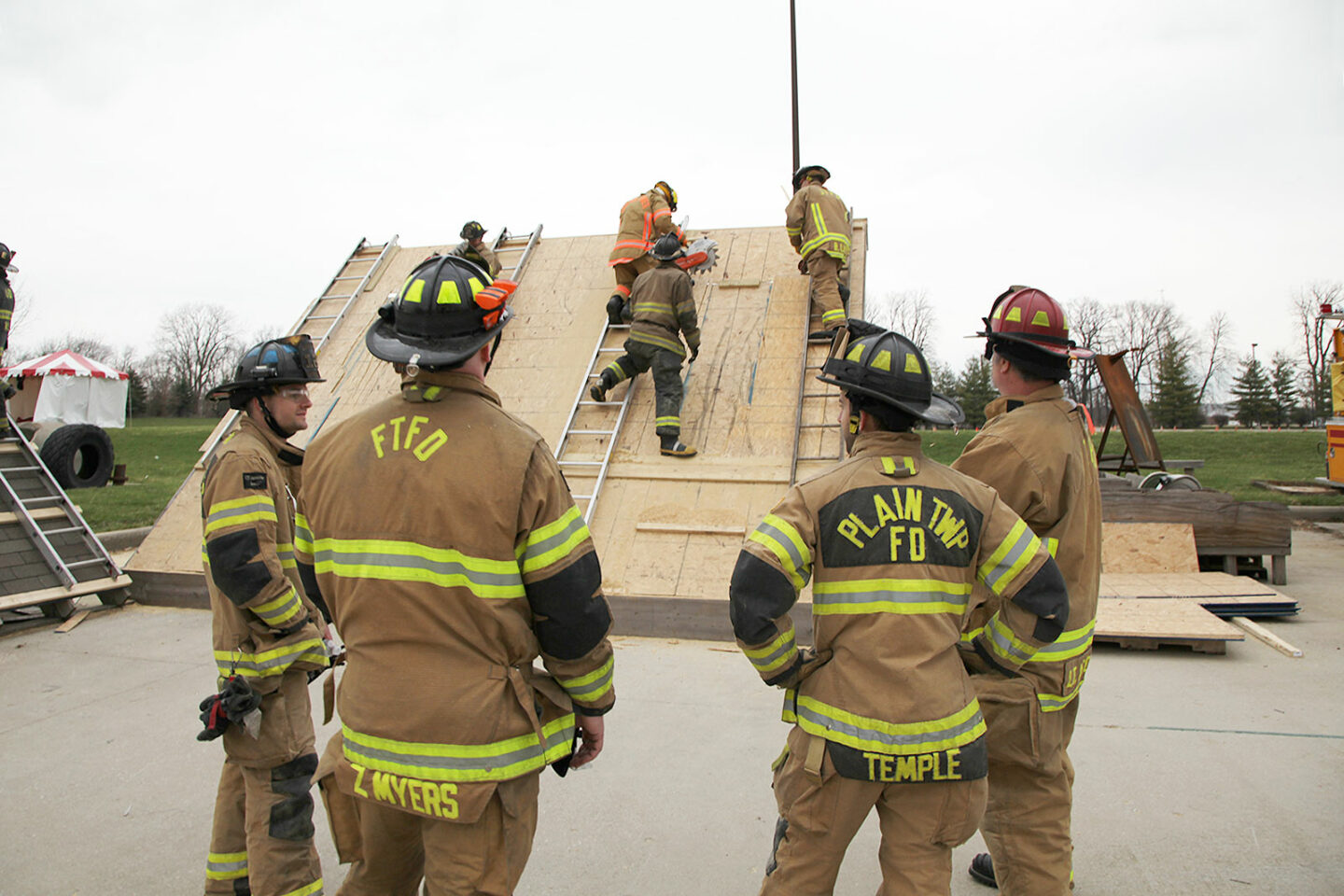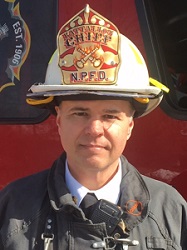
Many of us enjoy existing in a comfort zone. It becomes easy to accept that our little corner of the world has everything we need and nothing worthwhile could possibly exist over the horizon. Although a comfortable existence can be easy, ignorance of the world around us is dangerous to all firefighters.
We enter a particular fire department as a recruit, graduate to an assignment as a probationary firefighter, then begin the career-long process of learning our craft. From indoctrination in recruit school, many of us are told that “our way” of doing things is the best way to get the job done. This line of thought holds some value to the new firefighter. The new member must digest an immense amount of information and learn and demonstrate a wide variety of complex skills in a relatively compressed time frame. The best way to accomplish this is through recitation of information and repetition of actions. There is little time for alternate points of view. All recruits must absorb and conform in order to form a cohesive unit from people of differing backgrounds, education, and life experience.
However, there comes a time in one’s career when the basics have been mastered and the institutional knowledge has been absorbed with great efficacy. Rather than getting comfortable within the confines of the box of knowledge and traditions with which we are familiar, this is an opportunity to develop as a firefighter. Challenge yourself with new goals, expose your department to a fresh perspective, seek out new perspectives and evaluate the possibility of change. There are numerous ways the modern firefighter can gain a wider exposure to the fire service outside of his or her own department. Experiencing many of these venues throughout a career will help to create a more versatile firefighter who can expose their fire department to the best of what is available throughout the fire service.
RELATED
First-Due Battalion Chief: Complacency
Is the Fire Service Trading Effectiveness for Efficiency? Complacency and Normalization of Deviance
Construction Concerns: Complacency and Hubris
Don’t Bet Your Life: The Sin of Complacency
The first step out of the comfort zone for firefighters may be to attend county or state fire academy classes. Often these classes are taught by instructors from various nearby jurisdictions. These classes provide exposure to differing points of view, equipment, and policies that may be address responses common to the firefighter’s locale. It is usually beneficial to be aware of solutions and experiences that are close to home. With this type of exposure, many firefighters will soon be prepared to broaden their scope. Many fire service organizations sponsor regional seminars or workshops in which national speakers are retained to provide insight on a specialty topic like building collapse or a general program such as fire service leadership. These topics are often presented in a single day or weekend format and can expose the inquiring firefighter to many well-respected fire service instructors. These instructors bring wide-ranging experience and points of view that the local firefighter can process through the dynamics of his or her own fire department. Both the fire academy experiences and the regional workshop venues are programs firefighters can participate in throughout their careers, bringing forward ideas and solutions processed through the focus of their current assignment in the fire department.
Another opportunity for exploration may be found in a major forum such as the Fire Department Instructors Conference International (FDIC International). Attendance at such an event exposes the firefighter to high-quality training experiences, an almost limitless amount of the most innovative equipment, as well as the knowledge, experience, and brotherhood of tens of thousands of fellow firefighters. This platform provides tremendous opportunities to network with other firefighters of all experience levels. Firefighters can strengthen bonds, pass along information, and learn about the true depth of knowledge in our profession.
In addition to learning from each other in classes and conferences, firefighters should discover the appropriate point in their career when service on a county, state, or national board would be a beneficial endeavor. Working to establish curriculum at a fire academy, helping to develop a consensus standard, or participating in the development of national training resources may be some of the more advanced opportunities available in the fire service. This work, while often challenging, is extremely fulfilling.
The path of career-long learning in the fire service extends to other educational opportunities. Once firefighters have achieved proficiency in their current position, a thought toward the future is in order. Seeking out higher education is another avenue to explore beyond realm of the firefighter’s own department and the familiar approach to the fire service. There are a wide variety of college programs and fields of study that will benefit firefighters by broadening their base of knowledge and exposing them to a diverse student population with differing professional backgrounds in and outside of the fire service. Modern delivery platforms for higher education include programs that revolve around “brick-and-mortar” classrooms, those that have an online component, and others that are completely web-based. With many fire departments supporting at least a portion of the tuition, firefighters should look to this opportunity as a challenge to explore beyond their routine experiences.
One of the most enlightening educational paths for a firefighter may be found in National Fire Academy Curriculum. No matter the course, the content and instructional methods are impeccable. The academy offers several delivery options depending on the course. With a wide variety of offerings, firefighters at all points along their career path can find material that is beneficial. In addition, these classes provide yet another opportunity for firefighters to get out of “the box” that is their own organization and routine. The networking and fellowship of firefighters from near and far adds value to the class content and enriches the overall experience.
Perhaps the simplest method for a firefighter to enhance their knowledge and gain exposure to ideas and experiences beyond their own fire department involves reading and discussing material that is readily available to anyone in the fire service. Trade publications provide printed resources as well as digital content that is available on a daily basis. A wide variety of government agencies and fire service organizations also provide high quality material that informs and educates firefighters about emerging trends and practices across the nation. With such wide-reaching access, there is little excuse for firefighters to confine their knowledge of the fire service strictly to their own department. These industry and government resources allow members a glimpse at options for equipment, tactics, and other ideas that may be included or modified to fit the operations of other jurisdictions. Firefighters can introduce what they have learned through the official route of communication with the department. However, much of this material is valuable for less-formal discussion at the company level. When each member of the firehouse is extending their reach “out of the box,” there are always new ideas and innovations as well as discussions about lesson learned by others that can be applied within the organization. These sessions may be best held as “tailboard training” within the company or an open discussion at the kitchen table.
The goal for each firefighter should be career-long advancement of knowledge and awareness about our continually evolving profession. We have numerous avenues that will take us out of our comfort zone and introduce different perspectives, lessons learned by others, and emerging trends of which we are unaware. The decision lies with the individual firefighter to get out of their box and experience the wider perspective of fire service insight and knowledge that is available. Then bring this exposure back and use it for the betterment of our peers and out fire department.

David DeStefano is a battalion chief with the North Providence (RI) Fire Department, where he has served for 29 years. He is a shift commander in the operations division. He was previously chief of training and safety and has also served as a captain, lieutenant, and firefighter in Ladder Co. 1 as well as a lieutenant in Engine Co. 3. DeStefano is an instructor/coordinator with the Rhode Island Fire Academy and lectures on fire service topics throughout Southern New England. He was a presenter at FDIC International 2017 and 2018.

